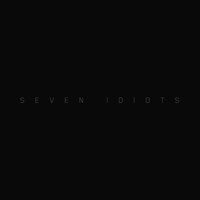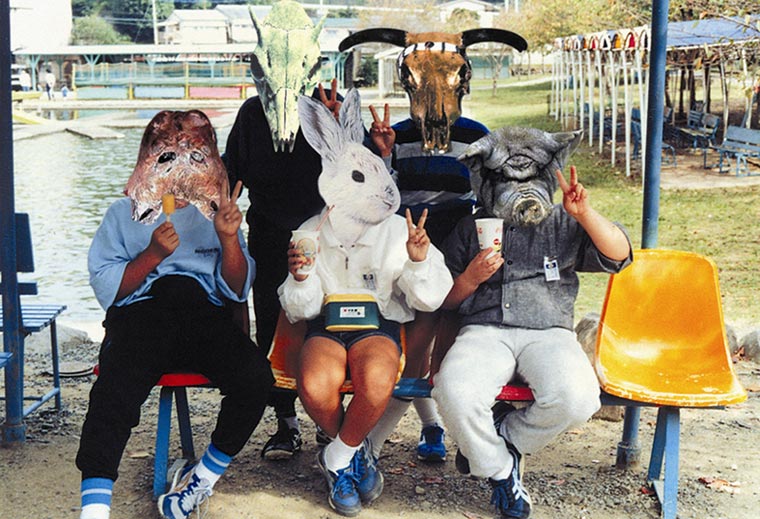 World’s End Girlfriend: Seven Idiots (Erased Tapes, 6/21/11)
World’s End Girlfriend: Seven Idiots (Erased Tapes, 6/21/11)
World’s End Girlfriend: “Teenage Ziggy”
[audio:https://alarm-magazine.com/wp-content/uploads/2011/05/Worlds_End_Girlfriend_Teenage_Ziggy.mp3|titles=World’s End Girlfriend: “Teenage Ziggy”]For more than a decade, Tokyo’s World’s End Girlfriend has produced electric and electronic music that stubbornly resists tidy classification. Though elements of post-rock, IDM sample-weaving, and classical melody are present in WEG’s dense soundscapes, the thrilling sum of the music is much more difficult to define than its individual parts.
World’s End Girlfriend is the solo project of Japanese composer Katsuhiko Maeda. Despite enjoying a sizable cult following in his home country, Maeda has garnered relatively little exposure in the United States. In fact, American audiences probably are most familiar with the 2006 album Palmless Prayer / Mass Murder Refrain, WEG’s collaborative effort with renowned Japanese post-rockers Mono.
But all of this is poised to change following the domestic release of its most recent effort, last year’s Seven Idiots, in June. Simultaneously hyper-melodic and abrasive, Seven Idiots easily ranks among WEG’s best work and should serve as a fine introduction to the band for American audiences.
When he’s away from the studio, Maeda spends most of his spare time at the helm of Virgin Babylon Records, a label he created last year. Virgin Babylon handles all of WEG’s regional distribution (Seven Idiots is being distributed in America through UK-based Erased Tapes Records) and is currently home to diverse stable of artists that includes Matryoshka, About Tess, and Joseph Nothing Orchestra.
How has WEG drawn on and altered the history of post-rock in Japan?
I don’t want to put my music in the small framework of post-rock. If you look at music as a huge tree, my music is a tiny branch of it. But that branch is a part of tree that is rooted deep under the ground. I can answer your question, talking about that tiny branch part, but I’m not interested.
You originally recorded Seven Idiots with vocals and later deleted them after finishing the songs. Why?
[In] the beginning, I decided to delete the vocal parts after the initial making. The reasoning of that method was to use strong melody and ’60s-like pop-sense as a melodic core, and then to mash that with other elements — mixing “pops” and “un-pops” together unconsciously through distraction and reconstruction.
How has Seven Idiots been received outside of Japan? Will you look for a “permanent” European or American label?
I have licensed [WEG] to Erased Tapes to release in EU and US territories. It has also been licensed in Korea, Taiwan, Hong Kong, and China. The international reviews have mostly been pretty positive so far.
Do you worry that people who are drawn to your music for the beautiful melodies won’t appreciate your challenging and improvised pieces, such as the “Bohemian Purgatory” tracks on Seven Idiots?
I don’t care if people reject my music because I make stylistic changes. I get those kinds of reactions every time I release a new album.
Even as my music style changes, it’s only the surface of my music. No matter what kind of style I chose, my musical core never changes. These days, many listeners mention things like this, but I don’t worry about these reactions. I believe that every time I release a new title, there must be some change and adventure, otherwise it’s not a great piece or expression.
How many songs would you like to write over the span of your career?
I’m not interested in numbers; I just want to make good music. I hope one day that I can make even just one song where I can feel, “This is the one that all my life exists for.”
You have toured all over the world. Have you observed any differences or similarities between certain countries that surprised you?
All cities I have toured in so far are different because every country has its own culture and history. But all have been modern cities, so I wasn’t so surprised by anything. But China is very interesting; in all the places that I visited [in China], people were so energetic and full of momentum.
Has running Virgin Babylon been more or less stressful than you originally anticipated? Has it affected how you approach your own music?
I started Virgin Babylon Records with a strong and high motive. I knew there would be much stress, so I won’t complain about that. I don’t know if it has affected my music; maybe it will happen in the future.
Artistically, how do you feel WEG has progressed over the past decade?
I feel that I can express my vision more clearly [now] with music than that when I first began. Also, I can see musical changes over the past decade as I try add something new, something that I’ve never done before each time.
What projects are you currently working on?
I’m working on something now, but it is not yet time to make an announcement about it.

